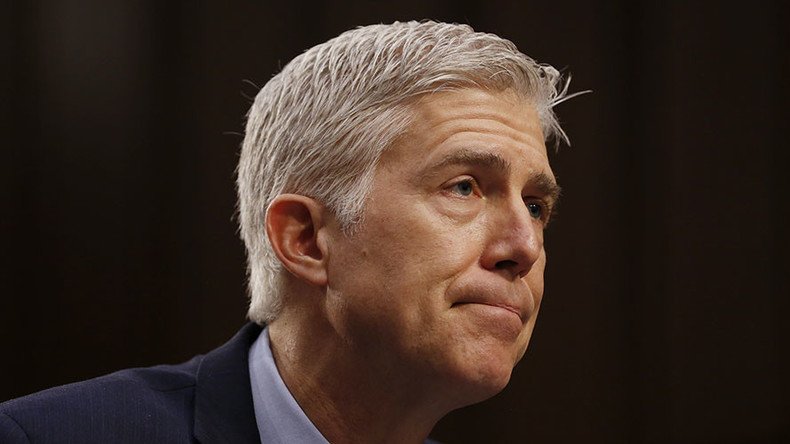Supreme Court unanimously strikes down Gorsuch ruling

A ruling made by US Supreme Court nominee Judge Neil Gorsuch in a federal appeals court has been struck down 8-0 by the Supreme Court. Gorsuch apologized for his ruling during a Senate confirmation hearing, but defended it based on circuit precedence.
Gorsuch’s lower court decision was overturned Wednesday, during the second day of his confirmation hearing to be the Supreme Court’s ninth justice. The unanimous decision overturned his 2008 ruling in Thompson R2-J School District v. Luke P.
Gorsuch’s ruling had determined that a school district was not in violation of the federal Individuals with Disabilities in Education Act (IDEA) if they provided an education that “must merely be ‘more than de minimis.’”
‘No man is above the law’: #SCOTUS nominee #Gorsuch talks torture, guns, wiretaps and sexism https://t.co/sdrv0jP758pic.twitter.com/QHiFL0GuA3
— RT America (@RT_America) March 21, 2017
The family of an autistic child who felt their public school was unable to accommodate their son’s disability and felt forced to put him in a private educational setting appealed. The family of the child identified as “Luke P.” sought to have the district reimburse them for their child’s tuition after an occupational therapist determined that the therapy provided by the Thompson R2-J district sometimes “unknowingly reinforced Luke’s unwanted behaviors” and that Luke “had made little or no progress on many of his goals and objectives.”
While Gorsuch’s ruling determined that the school’s ability to provide just above the bare minimum put them on the right side of IDEA, the Supreme Court vehemently disagreed. Writing for a unanimous court, Chief Justice John Roberts explained: "When all is said and done, a student offered an educational program providing 'merely more than de minimis' progress from year to year can hardly be said to have been offered an education at all.”
“For children with disabilities, receiving instruction that aims so low would be tantamount to ‘sitting idly… awaiting the time when they were old enough to drop out,” Roberts added, citing the 1982 ruling of the Board of Education v. Rowley.
Gorsuch was questioned about this ruling during his confirmation hearing Wednesday by Senator Dick Durbin (D-Illinois). Gorsuch claimed that he did not savor “a result where an autistic child happens to lose,” but cited a precedent in the 10th circuit appeals court where he presided.
"We were bound by circuit precedent, a case called Urban v Jefferson County School District,” he explained, "that’s the law of my circuit, Senator.” He continued to say, "I understand today that the Supreme Court has indicated that the Urban standard is incorrect. That’s fine, I will follow the law… If I was wrong, Senator, I was wrong because I was bound by circuit precedent, and I’m sorry."













